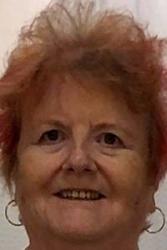A ‘public option’ ignores rural communities’ unique health care needs

Doctors, nurses and hospitals are the cornerstone of Colorado’s diverse health care system, and for rural communities, they often mean even more. Rural health care providers make significant sacrifices to create access to critical services that individuals and families would have to travel long distances for otherwise. They are economic contributors, lifelines to preventative and behavioral health resources, and, perhaps above all, they are friends and neighbors.
The COVID-19 crisis has amplified the essential role that rural providers serve but also the significant financial challenges and operational limitations. Keefe Memorial Hospital in Cheyenne Wells is just one example of how the pandemic is affecting the fragile rural health care system. The impact of an absence from even one physician can stress the entire system, and finding replacements or substitute physicians — even before the COVID-19 pandemic — is hard to come by.
It is a testament to our state’s integrated health care system that is designed to improve access and delivery of quality care to any area that may fall short. Our unified health care system is much larger than one physician, one hospital and one health system. As the COVID-19 crisis continues to unfold, a newly designed hospital buddy system has allowed for urban and rural hospitals to coordinate and share resources for high-level patient care on an hourly basis. By our health care leaders and state officials collaborating and working together broadly across the state, patients receive better care, and ultimately lives are saved.
Sadly, Colorado lawmakers could leave rural communities further at risk. Before the COVID-19 pandemic, state officials and lawmakers were pushing for a new state government health insurance option that recommended limiting rates to health care providers. Simply put, such a move could be detrimental to rural hospitals and health care workers.
The bill sponsors from last session have hinted they soon plan to introduce a new version of a public option bill. These same lawmakers have claimed they wanted input from Colorado’s health care community and stakeholders for improvements to the new bill but have yet to give us a seat at the table. Even Senate President Leroy Garcia admits he has not seen the new bill.
It is most likely that rate setting will still be part of the new legislation, and it’s impossible to know exactly how hard rate cuts will impact rural providers. Rural hospitals often face greater costs of providing care, which creates smaller margins. The average rural Colorado hospital has a negative 1.8% operating margin, the Colorado Rural Health Center finds, which makes reimbursement cuts unabsorbable. Rural hospitals across the country are on life support. Nearly a quarter of rural hospitals nationally are on the brink of closing, reported Becker’s Hospital Review, and a Navigant Research study indicates as many as 1 in 3 rural Colorado hospitals could be forced to close under a state government option. Those possibilities are concerning for rural communities.
The full article is available in our e-Edition. Click here to subscribe.
